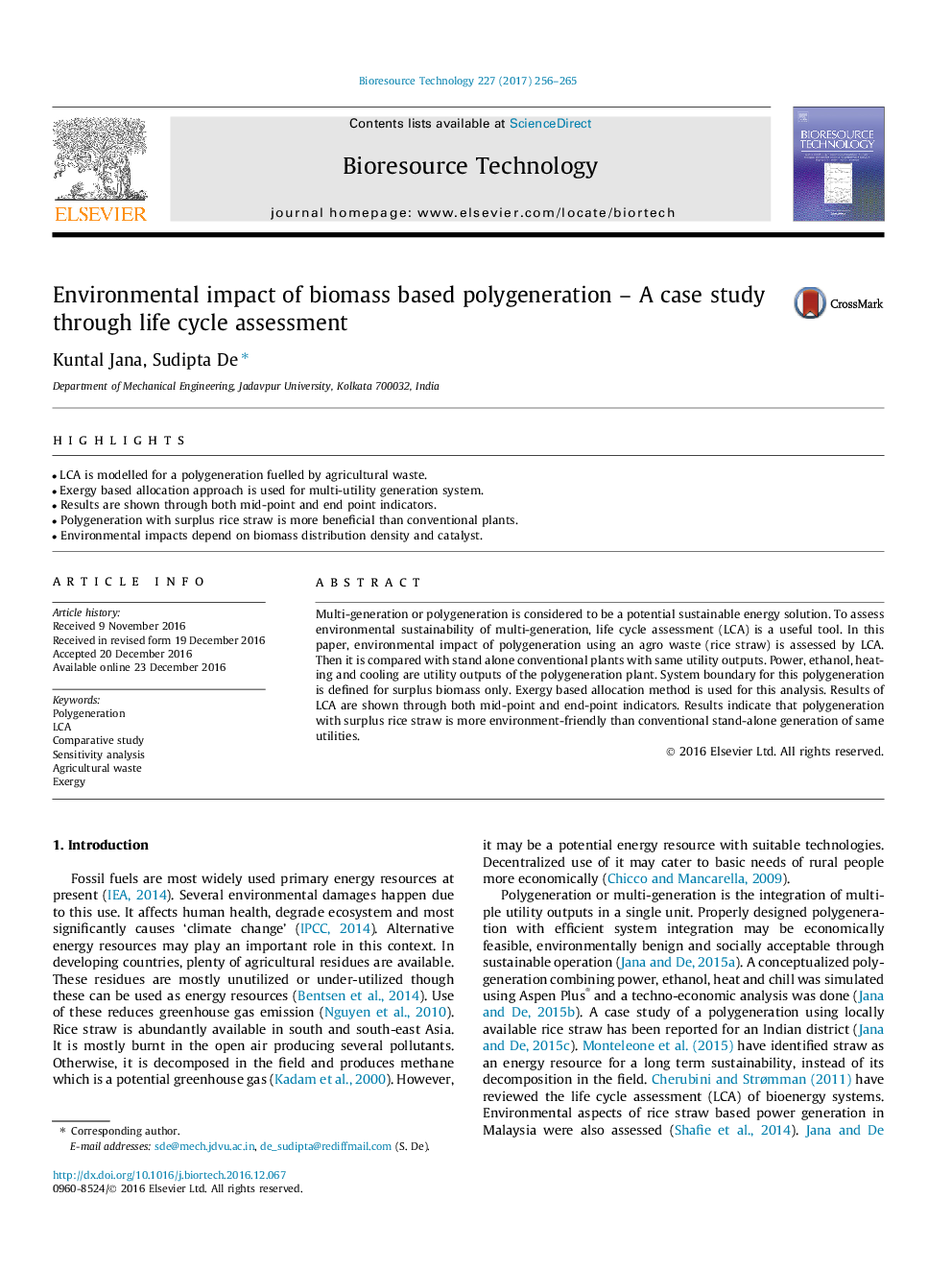| Article ID | Journal | Published Year | Pages | File Type |
|---|---|---|---|---|
| 4997687 | Bioresource Technology | 2017 | 10 Pages |
â¢LCA is modelled for a polygeneration fuelled by agricultural waste.â¢Exergy based allocation approach is used for multi-utility generation system.â¢Results are shown through both mid-point and end point indicators.â¢Polygeneration with surplus rice straw is more beneficial than conventional plants.â¢Environmental impacts depend on biomass distribution density and catalyst.
Multi-generation or polygeneration is considered to be a potential sustainable energy solution. To assess environmental sustainability of multi-generation, life cycle assessment (LCA) is a useful tool. In this paper, environmental impact of polygeneration using an agro waste (rice straw) is assessed by LCA. Then it is compared with stand alone conventional plants with same utility outputs. Power, ethanol, heating and cooling are utility outputs of the polygeneration plant. System boundary for this polygeneration is defined for surplus biomass only. Exergy based allocation method is used for this analysis. Results of LCA are shown through both mid-point and end-point indicators. Results indicate that polygeneration with surplus rice straw is more environment-friendly than conventional stand-alone generation of same utilities.
